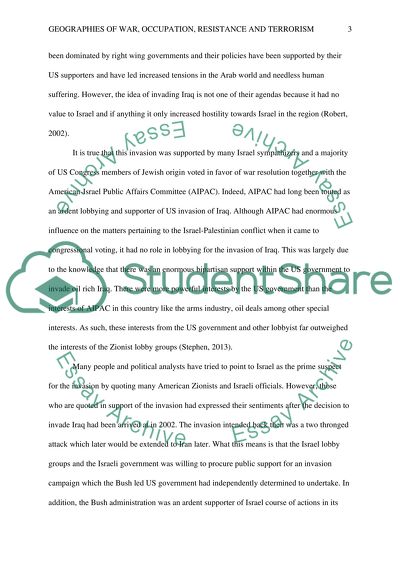Cite this document
(“Geographies of war, occupation, resistance, and terrorism Essay - 1”, n.d.)
Retrieved from https://studentshare.org/history/1473447-geographies-of-war-occupation-resistance-and
Retrieved from https://studentshare.org/history/1473447-geographies-of-war-occupation-resistance-and
(Geographies of War, Occupation, Resistance, and Terrorism Essay - 1)
https://studentshare.org/history/1473447-geographies-of-war-occupation-resistance-and.
https://studentshare.org/history/1473447-geographies-of-war-occupation-resistance-and.
“Geographies of War, Occupation, Resistance, and Terrorism Essay - 1”, n.d. https://studentshare.org/history/1473447-geographies-of-war-occupation-resistance-and.


